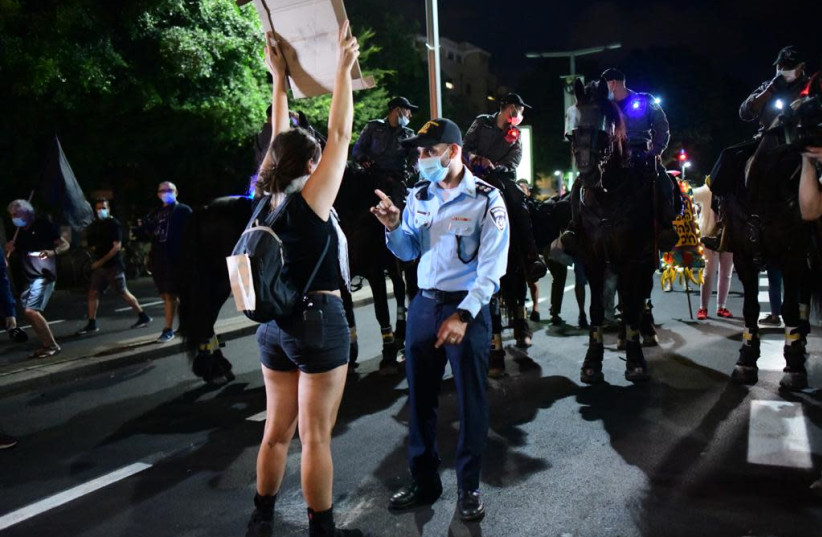One year ago, the gang-rape of a 16-year-old girl by numerous assailants in Eilat’s Red Sea Hotel became public and shocked the country.
The rape, allegedly perpetrated primarily by minors, brought conversations about sex offenses to the forefront of public discourse and pushed leaders to find solutions to Israel’s failings in handling these offenses.
So what, if anything, has been achieved in this year and is Israel any better off when it comes to preventing and dealing with sex offenses?
“It cannot be denied that there has been a significant increase in public awareness of the incompetence of the government in handling sexual violence, especially among youth,” the head of Israel’s lobby against sexual violence, Yael Sherer, told The Jerusalem Post.
This increased awareness from the incident “influenced the opening of a trauma room for victims of sexual offenses in Eilat’s Joseftal Hospital, and other trauma rooms, among other things,” Sherer went on to say.
She explained that while such emergency care is important, discussions on healthy sexuality and boundaries must be carried out, in particular among youth.
Association of Rape Crisis Centers in Israel (ARCCI) CEO Orit Sulitzeanu agreed that the Eilat rape was a “game changer” in terms of public opinion and that the need for better education on healthy sexuality and sexual violence in Israel is still acute.
“Israel still does not invest at all in national, systematic education for healthy sexuality and the prevention of sexual violence,” Sulitzeanu told the Post. This education will only take place if a principal or teacher decides to include it in their curriculum, she explained. Young Israelis “are not exposed to this crucial and basic education,” said Sulzeanu who added that she hopes that this will change under Israel’s new education minister.
In the immediate aftermath of the Eilat gang-rape, a number of schools attended by suspects in the case announced that they would address the incident, but there was no national educational response to the incident despite most of those allegedly involved being high-schoolers.

Another area in which Israel has failed to see improvement of the handling of sex offenses is in law enforcement.
Israel Police does not have special units for handling sex offenses and has recently been accused of mishandling numerous sex offense cases by women attempting to file complaints. They “have not made changes,” said Sulitzeanu.
Preliminary findings from a new University of Haifa Clinic for Legal Feminism study released last month also showed that Israel Police mishandle sex offense cases and mistreat the victims of these cases. Also last month, acknowledging how challenging it is to file a complaint can be, Public Security Minister Omer Bar-Lev appointed an adviser on violence against women saying that he will review the procedure for filing complaints about sexual violence with her. Whether improvements will be made to the procedure remains to be seen.
The shocking gang rape in Eilat made many Israelis realize that their children could have been the victim in a case like this , or among the aggressors, said Sulitzeanu.
In spite of this important public reckoning and the pressure on politicians it created, Israel still seems to be losing the fight against sexual violence.
